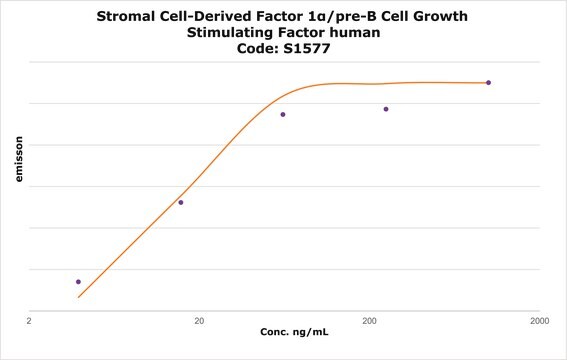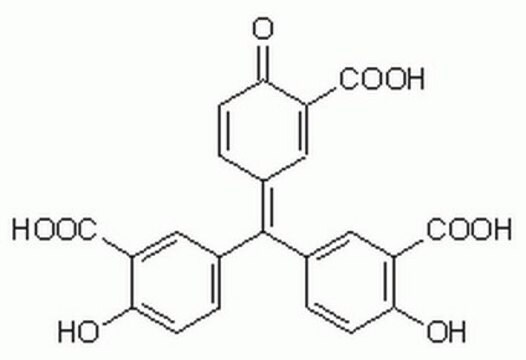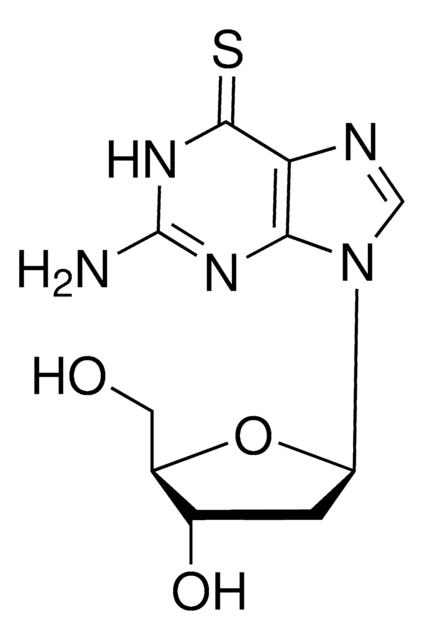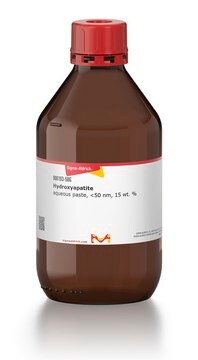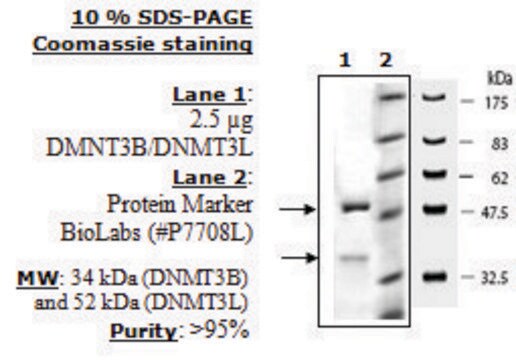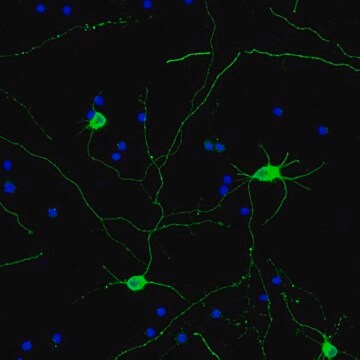おすすめの製品
由来生物
human
リコンビナント
expressed in E. coli
アッセイ
≥98% (HPLC)
≥98% (SDS-PAGE)
フォーム
lyophilized
有効性
1.0-10.0 mg per mL
分子量
13.2 kDa
包装
pkg of 20 μg
テクニック
cell culture | mammalian: suitable
不純物
<0.1 EU/μg endotoxin, tested
色
white
UniProtアクセッション番号
輸送温度
wet ice
保管温度
−20°C
遺伝子情報
human ... TFF3(7033)
詳細
Researcharea: Cell Signaling
The trefoil factor peptides (TFF1, TFF2, and TFF3) are secreted in the gastrointestinal tract. They are secreted peptides which are protease-resistant. TFF-3 is expressed by goblet cells and in the uterus, and has also been shown to be expressed in certain cancers, including colorectal, hepatocellular, and in biliary tumors. Recombinant human TFF3 is a homodimeric protein consisting of two 59 amino acid chains, which includes a 40-amino acid trefoil motif containing three conserved intramolecular disulfide bonds.
The trefoil factor peptides (TFF1, TFF2, and TFF3) are secreted in the gastrointestinal tract. They are secreted peptides which are protease-resistant. TFF-3 is expressed by goblet cells and in the uterus, and has also been shown to be expressed in certain cancers, including colorectal, hepatocellular, and in biliary tumors. Recombinant human TFF3 is a homodimeric protein consisting of two 59 amino acid chains, which includes a 40-amino acid trefoil motif containing three conserved intramolecular disulfide bonds.
アプリケーション
TFF3 human has been used in surface plasmon resonance(SPR) binding analysis to study the molecular interactions between TFF3 and the aminonitrile compound and its effect on inhibition of TFF3-dependent cancer cell survival.
生物化学的/生理学的作用
The trefoil factor peptides (TFF1, TFF2, and TFF3) play an important role in intestinal mucosal maintenance, defense, and repair. TFF3 also promotes airway epithelial cell migration and differentiation. TFF3 may be useful as a molecular marker for certain types of cancer. TFF3 interacts with the CD147 receptor to promote migration, invasion, and proliferation in colorectal cancer (CRC), Indicating its involvement in cancer progression. TFF3 stimulates the replication of pancreatic islet β-cells in humans and rodents, leading to increased proliferation while preserving their functionality. The effects of TFF3 on β-cell proliferation have been associated with the activation of the protein kinase B(Akt) and epidermal growth factor receptor (EGFR) signaling pathways.
シーケンス
EEYVGLSANQ CAVPAKDRVD CGYPHVTPKE CNNRGCCFDS RIPGVPWCFK PLQEAECTF
物理的形状
凍結乾燥品(添加物不含)。
再構成
バイアルは、開封前に遠心してください。0.1~1.0 mg/mLの濃度となるよう水で再構成してください。ボルテックスは行わないでください。この溶液は2~8°Cで1週間まで保存できます。長期保存の際は、キャリアタンパク質(0.1% BSAなど)を含有するバッファーで希釈し、1回使用量ごとに分けて-20~-80°Cで保存することをお勧めします。
保管分類コード
11 - Combustible Solids
WGK
WGK 3
引火点(°F)
Not applicable
引火点(℃)
Not applicable
適用法令
試験研究用途を考慮した関連法令を主に挙げております。化学物質以外については、一部の情報のみ提供しています。 製品を安全かつ合法的に使用することは、使用者の義務です。最新情報により修正される場合があります。WEBの反映には時間を要することがあるため、適宜SDSをご参照ください。
Jan Code
SRP3169-20UG:
最新バージョンのいずれかを選択してください:
Steen Seier Poulsen et al.
Regulatory peptides, 126(3), 163-171 (2005-01-25)
Peptides of the trefoil factor family (TFF1, TFF2 and TFF3) are cosecreted with mucus from mucus-producing cells in most organ systems and are believed to interact with mucus to form high-viscosity stable gel complexes. In the gastrointestinal tract, they sustain
P-O Lafontaine et al.
Journal francais d'ophtalmologie, 26(10), 1007-1014 (2003-12-24)
Trefoil factor family (TFF) peptides (formerly P-domain peptides; trefoil factor) are small (7-12 kDa) protease-resistant secreted peptides designated pS2 (or TFF1), SP (TFF2) and ITF (TFF3). Human conjunctival goblet cells (GCs) are known to synthesize TFF, but TFF expression by
Shu Q Liu et al.
PloS one, 8(10), e77732-e77732 (2013-11-10)
Cerebral ischemia, while causing neuronal injury, can activate innate neuroprotective mechanisms, minimizing neuronal death. In this report, we demonstrate that experimental cerebral ischemia/reperfusion injury in the mouse causes upregulation of the secretory protein trefoil factor 3 (TFF3) in the hepatocyte
Ting-yi Du et al.
PloS one, 8(11), e80271-e80271 (2013-11-28)
Trefoil factor 3 (TFF3) is a small peptide that plays an important role in mucosal protection, cell proliferation, and cell migration. The aberrant expression of TFF3 is correlated with gastrointestinal inflammation, solid tumors, and other clinical diseases. The objective of
Dale Porter et al.
Molecular cancer research : MCR, 1(5), 362-375 (2003-03-26)
Gene expression patterns in ductal carcinoma in situ (DCIS), and in invasive, and metastatic breast tumors were determined using serial analysis of gene expression (SAGE). We used mRNA in situ hybridization to examine gene expression at the cellular level and
ライフサイエンス、有機合成、材料科学、クロマトグラフィー、分析など、あらゆる分野の研究に経験のあるメンバーがおります。.
製品に関するお問い合わせはこちら(テクニカルサービス)